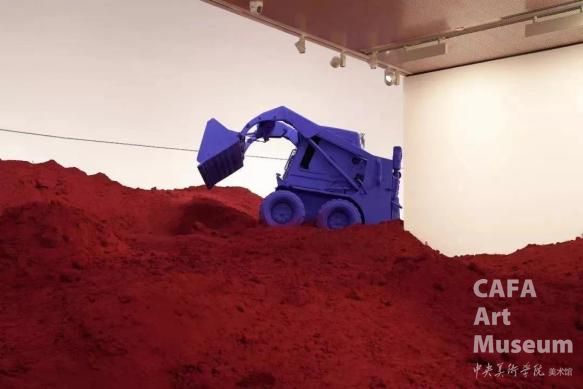

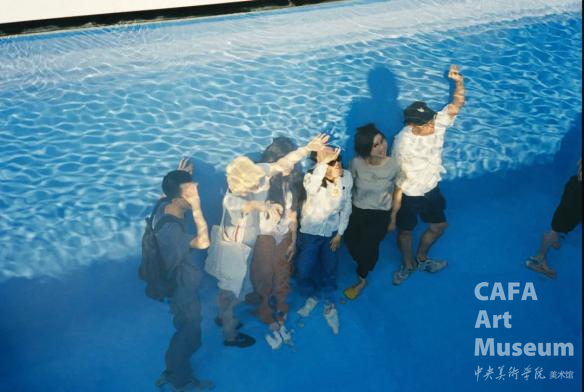
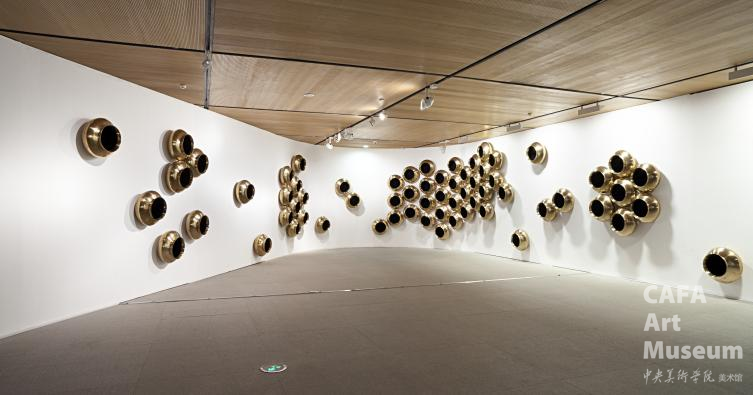
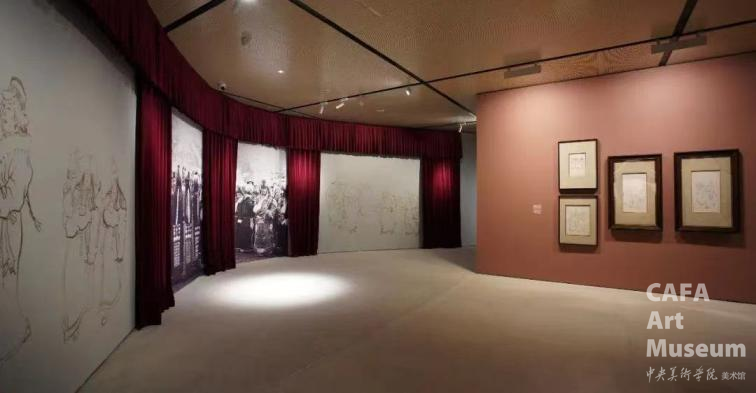
Enter the Behind-the-Scenes World of the Art Museum
Uncover the Secrets of Its Operation
Explore the Art Museum
Experience the Unique Perspective of the Curator
Draw Back the Curatorial Curtain
Discover the Stories Behind the Art Museum
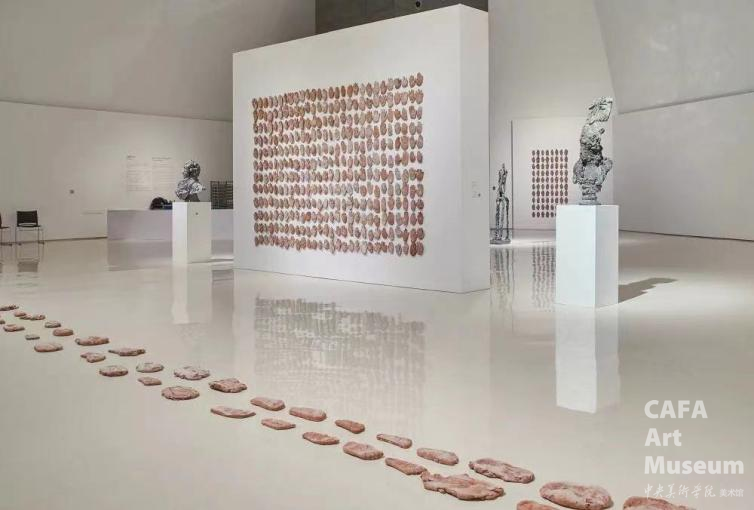
In contemporary society, exhibitions have become an indispensable and important part of people's cultural lives. The curation of art galleries is not only a reflection on classical art but also an exploration and response to contemporary creativity. Countless people who are passionate about art gather here, jointly witnessing how art transcends time and space, conveys beauty, inspires thinking, and demonstrates the resonance of culture and the depth of spirit.
This spring, the "Social Aesthetic Education Program of Chinese Aesthetic Education Campaign" of the School of Continuing Education of CAFA, in collaboration with the CAFA Art Museum, has grandly launched the "Short-term Training Courses on Art Museum Operation and Exhibition Planning (the 4th/5th Sessions)". This course has especially invited a group of experts and scholars who have delved deeply into the fields of art museum operation and curation. They will conduct an in-depth analysis of industry trends and share how to, while adhering to the aesthetic education mission of art museums, expand the boundaries of art dissemination with innovative thinking, enabling the power of beauty to reach a broader social group and promoting the continuous development and diverse expression of art.
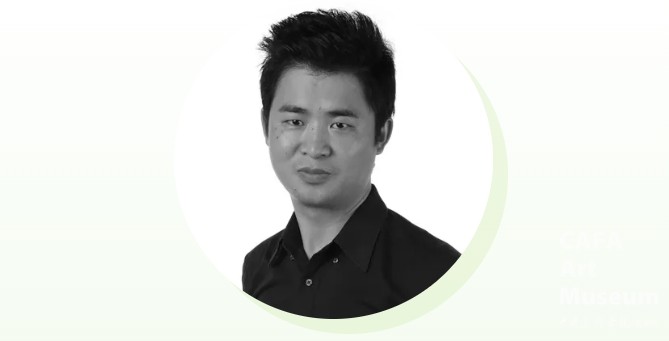
Hai Jun
Deputy Director of the CAFA Art Museum
Professor and Doctoral Supervisor of CAFA
Courses: "Operation and Sustainability of Art Museums"
"At present, the driving force of technology and the profound changes in social structure are reshaping the operational logic of cultural institutions. As an institutional form that undertakes public cultural functions, art museums inevitably face the pressure of transformation. Against the backdrop of the increasing limitations of the traditional model that relies on government funding and ticket revenues, how to achieve the sustainable development of art museums has become a fundamental issue that cannot be avoided... At its core is the establishment of a mechanism that can maintain self-regulation and continuously produce public value in a complex environment. This mechanism not only depends on a diversified economic support structure, but also requires that the institutional design reflects a balanced consideration of academic autonomy, public nature, and social effectiveness.
The sustainable development of art museums must go beyond the technical discussions at the management level and enter into a re-cognition of their institutional essence and cultural responsibilities. This includes: how to deal with the tension between academic research and communication, how to respond to the growing demands for social participation, how to expand a reasonable relationship with the market while maintaining the independence of art, and how to enhance its long-term vitality as a cultural infrastructure through structural organizational reforms."

Gao Gao
Deputy Director of CAFA Art Museum
Courses: "Operation and Management of Art Museums"
If, in the past... visitors were led into a state of passivity by the paintings, then our current design aims to make people take the initiative and become more active. This should be the purpose of my design for this exhibition room.
Modern museums are institutions with educational functions. In addition to providing the public with an aesthetic experience, art museums also need to convey knowledge to people. For a modern art museum, since the art categories it involves are very extensive and the art forms displayed are significantly different from traditional art forms, many artworks make the audience feel confused and unable to understand. Therefore, art education becomes even more necessary and important.
——Selected from "Alfred H. Barr and the Early Establishment of the Museum of Modern Art in New York"

Li Yaochen
Director of the Collection Department of CAFA Art Museum
Associate Researcher of the CAFA Art Museum
Courses: "Overview of the Collection Management Work in Art Museums"
"The characteristics of an art museum lie in its non-profit nature, public accessibility, and the establishment of a systematic academic framework based on the research of its collections. Systematic collection is an important feature that distinguishes an art museum from other art institutions such as art galleries. The research, exhibitions, and dissemination carried out based on these collections have formed the unique characteristics and cultures of art museums or art galleries.
......
At the current stage of China's development, the development of permanent exhibitions in art museums is definitely an important trend for the future. The academic depth and the quality of the collections required for permanent exhibitions are higher than those for temporary exhibitions. Planning permanent exhibitions will inevitably mobilize research forces on a wider scale. During the process of studying the collections, identifying their advantages, and sorting out the context, all the deficiencies in one's own work will be exposed, which is a test of one's own research ability and the architecture of all aspects of the art museum. This is a function that temporary exhibitions do not possess. This is also a great promotion for the construction of art museums in China.
——Selected from: "Li Yaochen: A Tentative Discussion on the Systematic Collection and Permanent Exhibition in Art Museums”
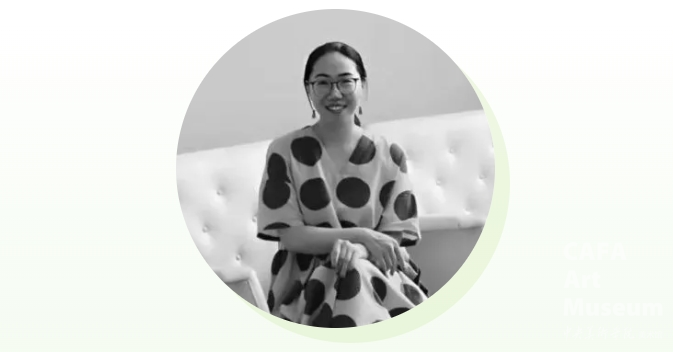
Liu Xiyan
Director of the Planning and Research Department of CAFA Art Museum
Associate Researcher of CAFA Art Museum
Courses: "Modern Curatorial Practice of Classic Exhibitions"
"The collection displays in China's early art museums demonstrate a process of learning from overseas while constantly adapting overseas experiences to China's actual situation. Overseas experiences played the role of a skeletal structure, assisting the art museums at that time in grasping several major directions that needed attention in planning the display of collections. However, when the early practitioners were adding flesh and blood to this skeleton, they did not completely copy the "Western methods." Instead, after taking into account China's art forms, the special relationship between collection and exhibition, the current situation of aesthetic education, and other factors, they depicted a local appearance for it, demonstrating an outstanding exploration of handling the relationship between Chinese art and Western art through the display of collections and using this as a representation of ideology. Although, as mentioned earlier, these early explorations were stifled in their potential for further development by the flames of war, these practices still had a significant impact on the subsequent thoughts regarding the display of collections in Chinese art museums."
——Selected from: "Liu Xiyan: Applying Western Methods in China — A Review of the Collection Exhibitions in China's Early Art Museums in the Early 20th Century"
There are also more wonderful courses
…
Intensive Class
(Enrollment in Progress)
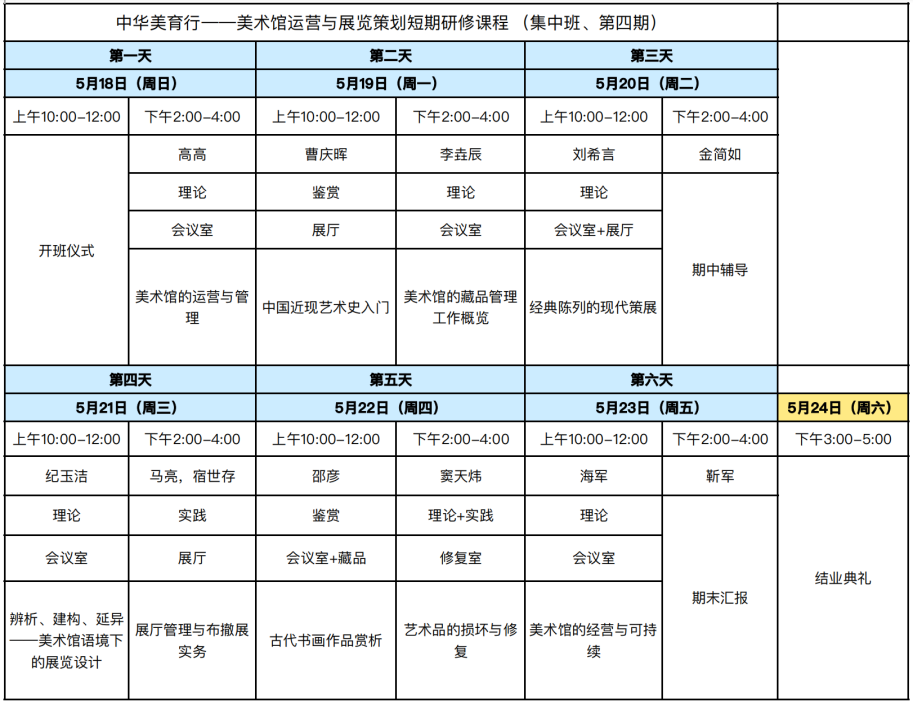
Weekend Class
(Enrollment has been closed)

*The art museum has the right to make adjustments to the courses under the same conditions.
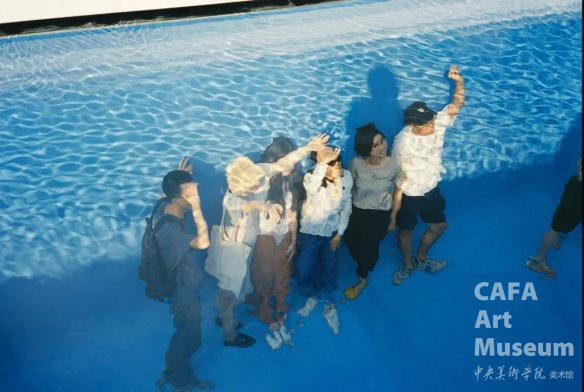
We sincerely invite you to embark on a journey of artistic enhancement together, delving deep into the operation of art galleries and the planning and execution behind exhibitions. This training workshop places great emphasis on "face-to-face interaction with mentors" and "personalized guidance." Under the guidance of experienced mentors, all you need is a bit of curiosity about art and a touch of interest in art galleries. Let conversations unfold under the mentors' guidance, and together, we can appreciate the beauty of all-encompassing art and culture.
| Friendly Reminder |
The registration for the "Short-term Training Course on Art Museum Operation and Exhibition Planning (Weekend Class)" has been closed as of April 5th. The registration for the "Short-term Training Course on Art Museum Operation and Exhibition Planning (Intensive Class)" will close on May 15th. For more information, you can call Teacher Jin at 15957702868 for consultation, or click "Read More" to jump to view the course prospectus.

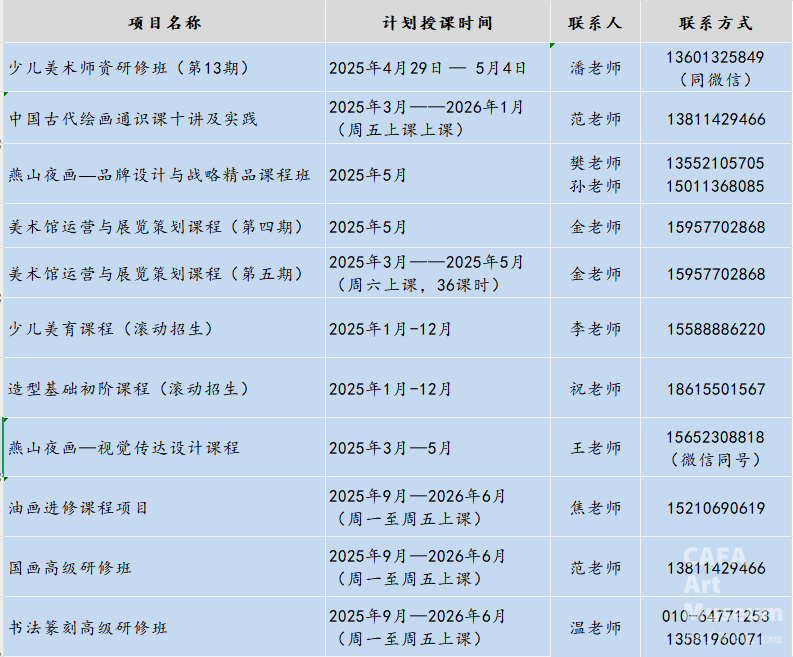

The Social Aesthetic Education Action Plan of "Chinese Aesthetic Education Campaign"
The Continuing Education College of the Central Academy of Fine Arts actively practices the spirit of serving the public through aesthetic education. Guided by the core spirit of General Secretary Xi Jinping's speech at the Symposium on Cultural Inheritance and Development, it gives full play to the professional and talent advantages of affiliated institutions to provide a sustainable high - quality development plan for the implementation of the "Chinese Aesthetic Education Campaign" of the Central Academy of Fine Arts. The "Chinese Aesthetic Education Campaign" Social Aesthetic Education Action Plan of the Continuing Education College of the Central Academy of Fine Arts is jointly participated by the experts and scholars of the Central Academy of Fine Arts, contributing wisdom and strength to the dissemination and promotion of the aesthetic education spirit of the Central Academy of Fine Arts.
CAFA Art Museum
The CAFA Art Museum is a professional and international modern art museum integrating functions such as academic research, exhibition display, collection, restoration, and public education. Its history can be traced back to the early 1950s. It is the first professional art exhibition hall built after the founding of the People's Republic of China and is also one of the first batch of key art museums in the country. Adhering to the academic concept of "inclusiveness, inheriting the past and creating the future", CAFA Art Museum serves society with "knowledge", is committed to the construction of contemporary public cultural spaces, presents the artistic civilization of mankind to the general public from a new perspective, and shares the culture of the times with all sectors of society.
Chief Editor / He Yisha
Editor / Du Yinzhu
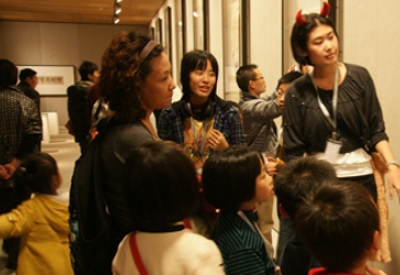
2010-10-23
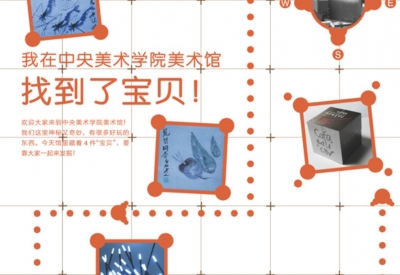
2010-11-06
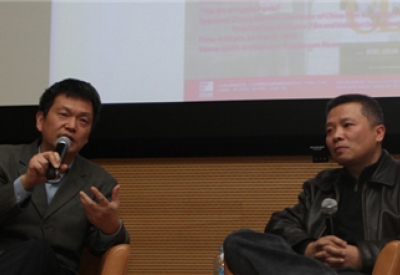
2011-05-20
